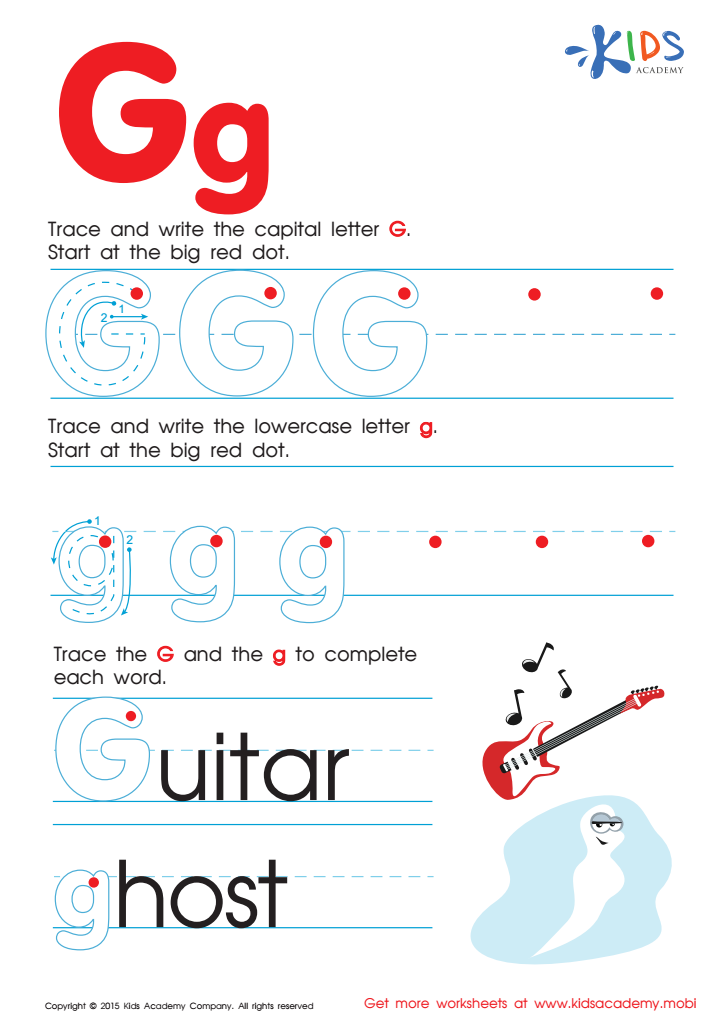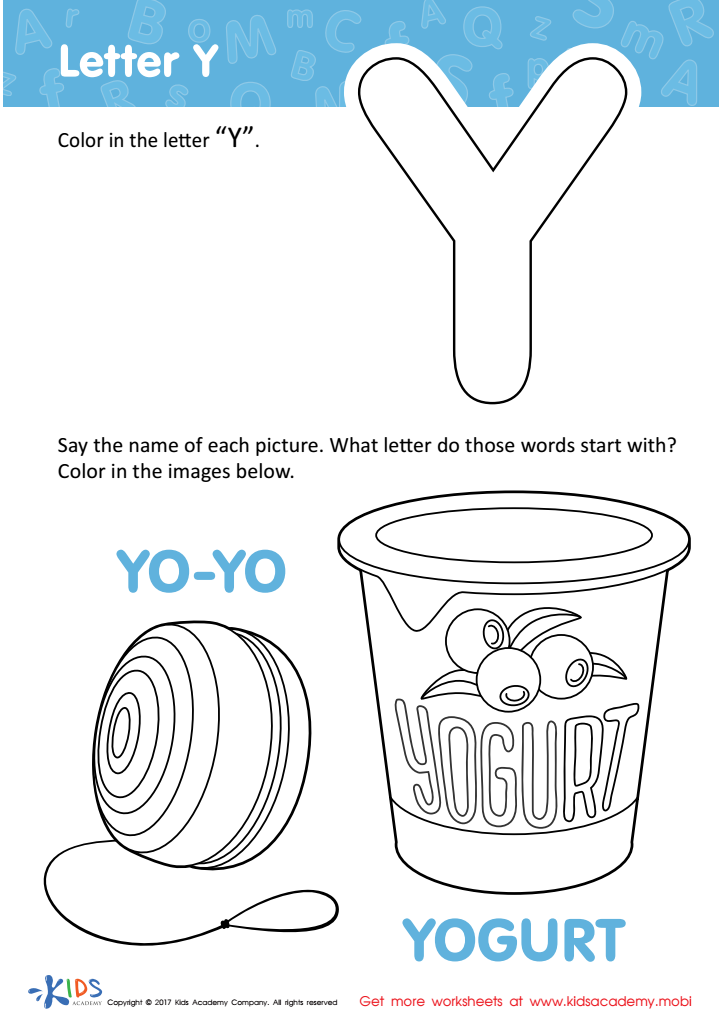Letter formation Letter Recognition Worksheets for 6-Year-Olds
4 filtered results
-
From - To
Welcome to our engaging collection of Letter Formation and Letter Recognition Worksheets designed specifically for 6-year-olds! These interactive resources help young learners master the fundamentals of letter identification and writing. Each worksheet features fun activities that promote both recognition and proper letter formation, ensuring children develop essential pre-writing skills. Parents and teachers will find a variety of exercises to cater to different learning styles, boosting confidence and literacy development. Explore these worksheets to inspire a love for letters and lay the groundwork for future reading and writing success. Download our captivating resources today and watch your child's skills flourish!


Letter A Tracing Page


Letter P Tracing Page


Letter G Tracing Page


Letter Y Coloring Sheet
Letter formation and letter recognition are crucial skills for 6-year-olds, as they form the foundation for future literacy and academic success. At this developmental stage, children are beginning to read and write, making it essential for them to recognize letters accurately and form them correctly.
Proper letter formation helps establish muscle memory in young learners, leading to better handwriting as they progress in school. Poor letter formation can result in frustration, slower writing speed, and decreased motivation, often affecting a child’s attitude towards learning.
Letter recognition is equally important; children need to identify letters to decode words effectively. This skill not only aids reading fluency but also boosts confidence as they encounter text in their daily lives. Children who struggle with recognizing letters may find it challenging to keep up in a classroom environment, which can hinder their overall academic progress.
Moreover, fostering these skills in a supportive and engaging way encourages a love for reading and writing. Parents and teachers should recognize that a strong foundation in letter formation and recognition will equip children with the tools necessary for effective communication, critical thinking, and lifelong learning. By nurturing these skills, they are investing in a child’s future success.
 Assign to My Students
Assign to My Students





















